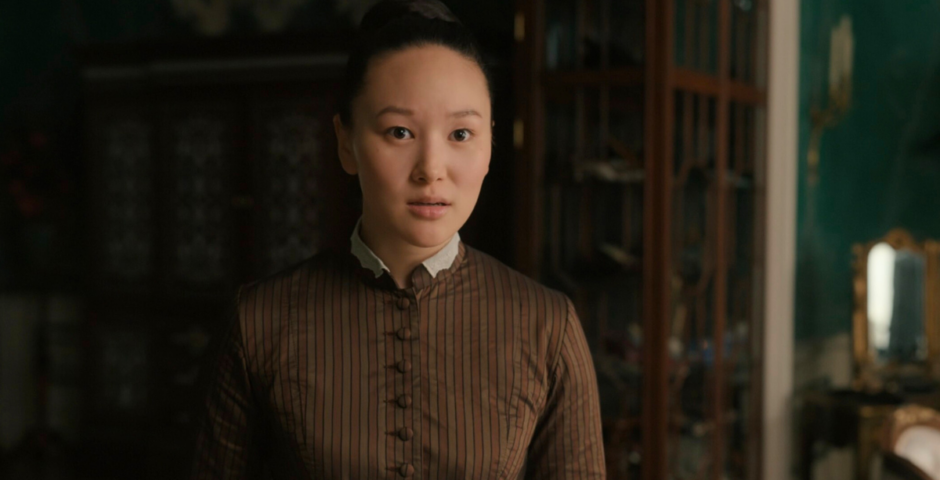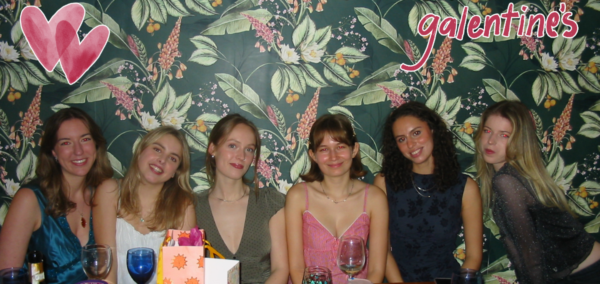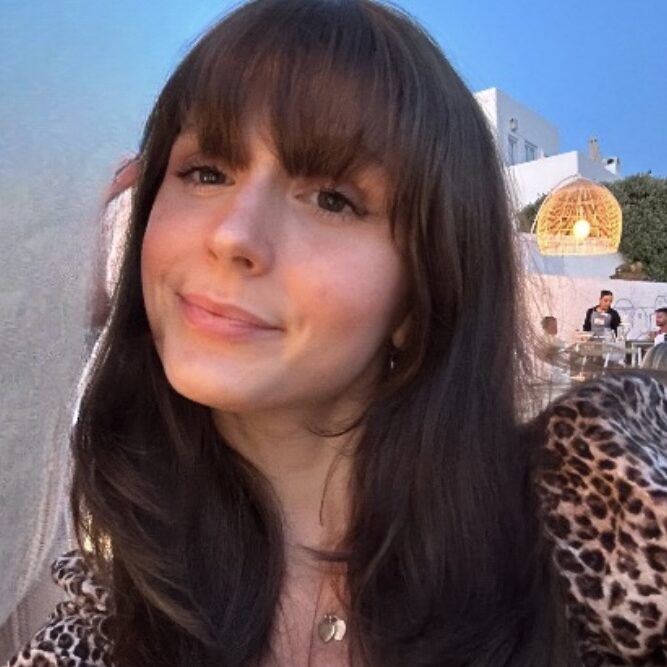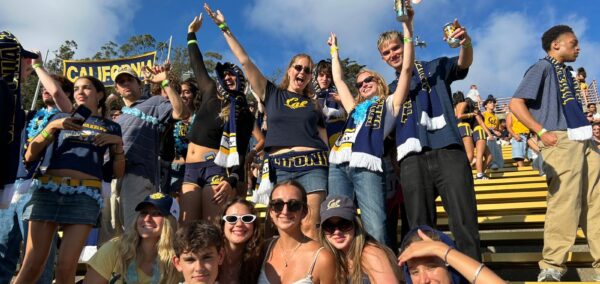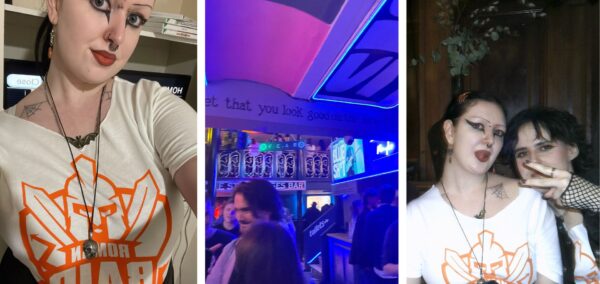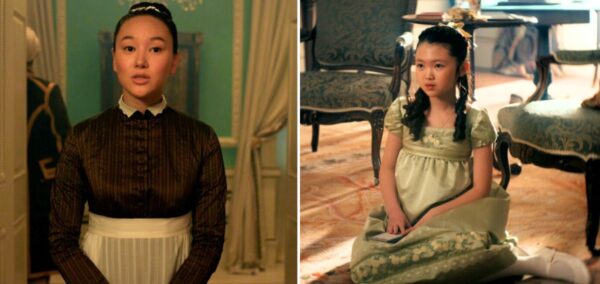
In conversation with Alfie Carter, the man behind Club Bonanza at Haus
The Sunday night show that brings acts from Live at the Apollo to Haus, Fallowfield
Haus’ Sunday comedy night, a long-term Fallowfield hidden gem, has now rebranded to Club Bonanza. I’d been a regular for my two years at uni – visiting most Sunday evenings once the hangover had subsided – but made a special pilgrimage down to the Giggle Arena last weekend to scope out the rebrand.
An eight o’clock start time, a lineup of four comedy acts, and a chat to Alfie Carter, the man behind the night. It truly was the best fun I’d had in a while, and I still made it to bed by 11.
Making a scene
If you’ve never been before, the night begins with a wonderful welcome from host and founder Alfie who, every Sunday, manages to create a space for a relationship between the stage and the audience.
He thinks of it as a chance to “undermine the seriousness” of the room, something that was definitely achieved when he opened last Sunday by guessing which Fallowfield accommodation the crowd lived in based on how they smelt.

The half-time game
This reaches its peak by the time the first two comedians have finished their sets, as next up is the half-time game. It is by far my favourite part of the night – once everyone is feeling warm, perhaps onto their second pint, he asks for three volunteers to take part in a challenge that can ultimately only be won by the candidate with the least shame.
Most Read
It could include anything from the best cappuccino-making impression to a nipple size standoff – yes, seriously. When I asked Alfie where he got the idea to have audience members compare nipple sizes on stage, he said, although he may have felt like a pervert, he couldn’t resist the temptation of some completely “harmless fun.”
“If it’s two guys, is it funny?” he recalled asking his friends. Clearly there is a highly serious vetting process for everything that goes down.
On improv and stand-up
He describes stand-up as “craft based but also subtle” which is a balance that fits with the structure of the night. By the end, he hopes to have managed to turn an attic of students into a “solace” and a “culture.” Based on how many returning faces I’ve seen over the weeks, his words are pretty accurate.
I asked about the improvisational aspect of the show and about how unpredictable the room can be. Alfie said, even when he’s performing a set, he rarely works from a script, but only because he can’t – it just makes him “lose the logic of it.” It surprised me to hear him talk about logic, it usually seems so endearingly ad hoc.
He looked away to think, and returned to explain: “I’ll go on stage with a structure of a joke, a logical progression, and the words can fill themselves in. I also will write punchlines which anchor down those more flexible areas.”
After the break, it’s time for the final two acts. It’s always totally unpredictable. He says of his own standup: “I’d rather people weren’t sure exactly what they’re going to get,” but it’s also true for the range of comedians he chooses for the show.

Industry and individuality
Since moving to Manchester for university he’s been known to do two or three gigs in a day. “I really went for it immediately,” he told me, and it seems to have paid off in such a people-oriented industry. “People have to like you to a degree that they find important – they might like you because they respect your act – but so much gets done if you’re just a polite person. Networking is too small a word. It’s about trust.”
Just as much as it’s about trust, it’s also about risk taking. When asked about things going wrong, he responded: “I wish I gave a bit more of a fuck about the immediate response from the crowd.”
Speaking of immediate response, I overheard someone in the crowd comparing Alfie to James Acaster. When I asked him how he felt about it, he said it’s something he hears often; “I can’t escape it.” It’s something he puts down to the “moppy hair, purple corduroy shirt and skinny arms”, not his comedy necessarily. “Ultimately, it’s nice,” he smiles.

The future of Club Bonanza
As we talked, Alfie gave off a sense that he isn’t quite where he wants to be yet: “Sometimes I come off thinking I just didn’t have it in me to match what I wanted to do, which is risk, but in quite a personal way. What’s brilliant about watching yourself back is you can hear exactly when it goes wrong. I like the idea that standup can be very autonomous, and after a period of 10 to 20 years, you can end up with something very flexible and very personal.”
Imagining the “20 years of admin experience” he’s competing with in the middle-aged comedy circuit of the North West, he comments: “Their email game is hot.” Being younger is a “challenge”, but Alfie is hopeful: “I’m only three years into my career, hopefully in five years there will be a tangibleness to it. At the moment it’s much more fleeting.”
Maybe that’s why he’s set on turning Club Bonanza “into a much more variety style show. I want it to be really free”, he says, as the conversation turns towards his career (a word that he can’t say without performing air quotes). He has a sense of loyalty to the live show and an absolute faith in making anything work, “I want it to have almost no barrier for entry if you’ve got something to do.” The future of Club Bonanza remains mysterious and exciting.
Featured image credit @maddiedraake




